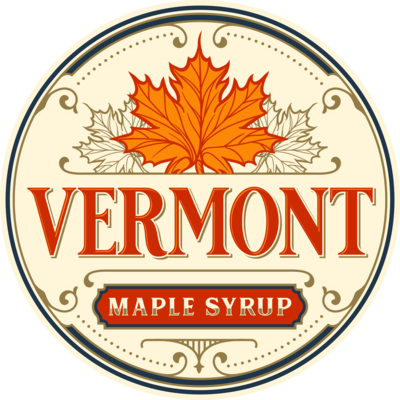When people think of maple syrup, they usually think of Vermont. It's just one of those products that tie a wonderful taste to memories, nostalgic feelings, and places – Vermont being one of them.

Maple syrup and Vermont are basically synonymous, and with over 2.5 million gallons of annual maple syrup production, totaling 50% of all domestic production (1), its understandable as to why Vermont has earned the unofficial title of the maple syrup capital of the U.S.
What makes maple syrup from Vermont special
It's no secret that Vermont is renowned for its stunning landscapes, quintessential towns, and, of course, its world-famous maple syrup. The sweet, golden elixir is a staple of the state's cuisine and agriculture, and tourists regularly explore its rich history and unique production process through beautiful fall tours and winter vacations.
In Vermont, maple syrup has truly found its perfect niche. Beautiful landscapes and a perfect production climate paired with the appreciation local Vermonters and tourists have for the outdoors mean that maple syrup from the state never loses popularity.
Cultural ties in production
Part of what makes maple syrup from Vermont so special is its local generational history of production. In Vermont, it is impossible to find a small-town community without local producers. Part of the reason is that it's fun and easy to produce and has been a community tradition for as long as Vermonters can remember.
If you go asking around in Vermont, you're sure to find a local with fond memories of late winter sap boiling and syrup harvest. Nowadays, it's common for farmers to use sap lines to harvest tree sap, but this wasn't always the case. Older Vermonters know the laborious tasks of carrying heavy pales of tree sap to and from the boiler. A lot of work goes into production, as a sap bucket can weigh anywhere from 20 to 30 pounds. Factor in dredging through an additional foot or two (or three) of snow, and a simple harvest can turn into a serious workout.
A big part of the quintessential nature of Vermont maple syrup is the local production elements. Here, maple syrup has no shortage of local producers, each with its own unique stories, legacies, and heritage. Many of Vermont's producers are family-owned and have been making syrup for generations, passing down their knowledge and expertise to ensure the highest quality product.
How is Vermont's syrup produced?
As mentioned, typically, larger farms with access to capital invest in sap lines that make syrup production fast and efficient. These sap lines directly pump sap into tanks, where they get transferred to a boiler. It takes roughly 40 gallons of sap to make a gallon of syrup, meaning that smaller farms should be rightfully accredited with the extra work and dedication required to haul buckets of sap to the boiler.
Vermont's maple syrup is renowned for its quality and flavor, and this is due to the unique production process used by the state's producers. The process involves tapping maple trees in the early spring or late winter, collecting the sap, and then boiling it down to create syrup. As water is boiled away through evaporation, sugars remain, which develop a rich, robust and pronounced maple flavor.
The labor-intensive production process requires careful attention to detail and a deep understanding of maple trees and the environment. For Vermont maple producers to be considered organic, they must not only abstain from pesticides and synthetic defoamers in the boiling process, but must also commit to long term sustainability.
Some standard organic practices and requirements include:
- Prohibiting pesticides
- Prohibiting tree tagging and marking
- Prohibiting synthetic defoamers used in the boiling and evaporation process
- Tree species diversity and conservation requirements
- Tree stand growth and regeneration
- Thinning and harvesting techniques
- Forest soil and road conservation
- Tapping depth
As it turns out, there are many requirements and specifications to what constitutes organic maple syrup. For a full list, read our blog, in which we answer if all maple syrup from Vermont is organic.
Vermont maple syrup is special
Maple syrup from Vermont is much more than just a delicious topping for pancakes. It's a rich and vibrant part of our state's heritage and culture, with long-lasting traditions still practiced today.
***
Vermont Maple Syrup makes the best organic Vermont maple syrup, maple sugar, and maple candy you will taste. In classy, nostalgic packaging that puts Vermont first. Organic, pure small-batch maple syrup and maple sugar — tapped, collected, and made available from our 1,200-acre farm in the small town of Guilford, Vermont, USA.










